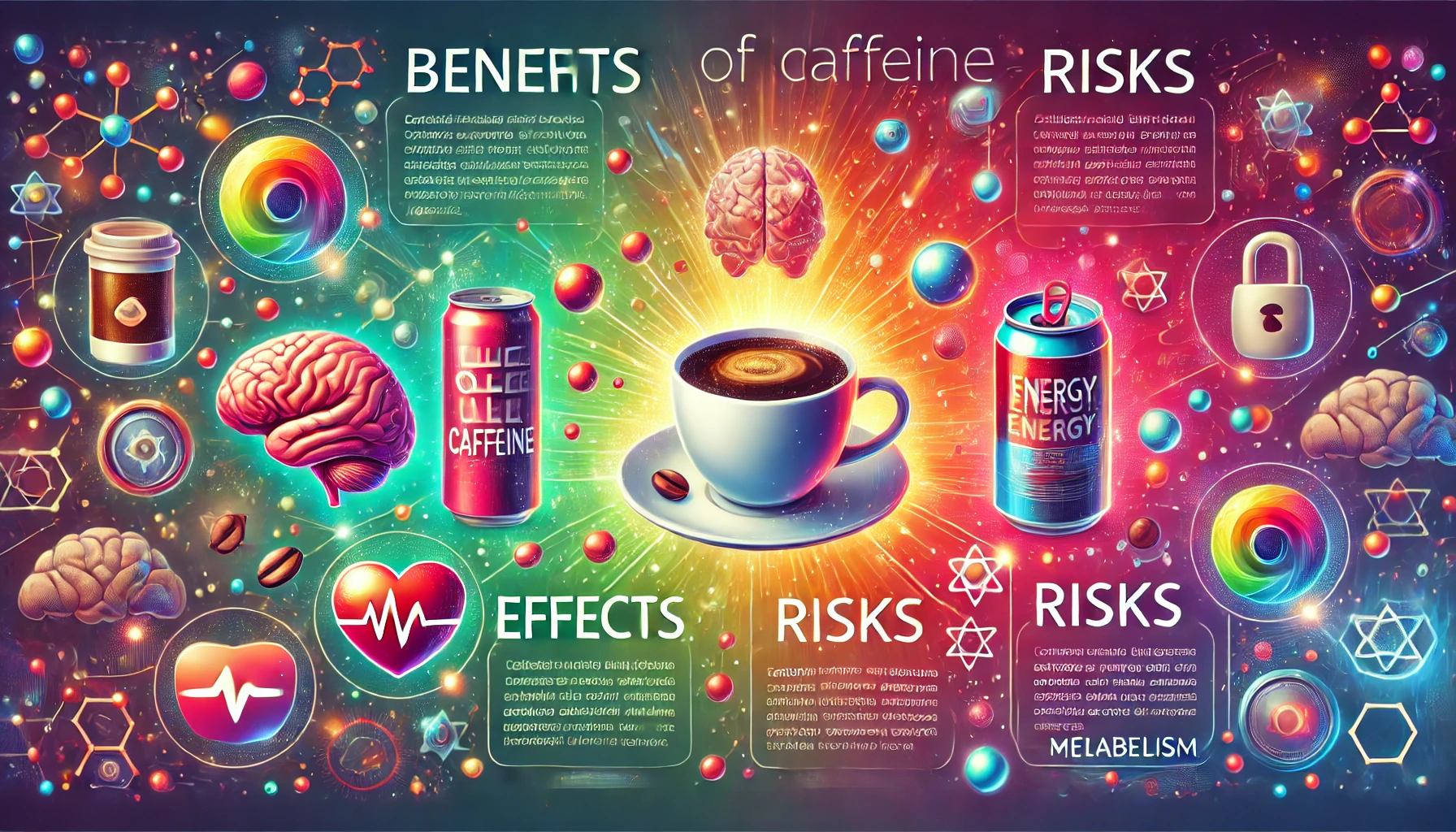Caffeine and the Body: Benefits and How It Affects You
Caffeine is a central part of many people’s daily routines, but how much do we really understand about its effects on the body? This blog delves into the intricate relationship between caffeine and the body, exploring both the benefits and potential risks. We’ll cover how caffeine affects various bodily functions, the benefits it offers, and what you need to know about metabolism, tolerance, and withdrawal symptoms.
The Role of Caffeine in Our Lives
The Popularity of Caffeine
Caffeine is a natural stimulant most commonly found in coffee, tea, and various energy drinks. Its widespread use is due to its ability to help people feel more awake and alert, making it a go-to for anyone needing a quick energy boost.
Effects of Caffeine on the Body
Understanding the effects of caffeine on the body involves looking at how it interacts with our central nervous system. Caffeine works by blocking the effects of adenosine, a brain chemical involved in sleep, thus keeping you alert and awake.
Benefits of Caffeine
Enhanced Cognitive Function
One of the most well-known caffeine benefits is its ability to improve cognitive functions. Caffeine can enhance memory, focus, and general cognitive performance, which is why it’s a staple for students and professionals alike.
Physical Performance
Athletes often use caffeine to boost their physical performance. It increases adrenaline levels, which can enhance physical endurance and strength, making it beneficial for both short-term high-intensity activities and prolonged endurance sports.
Metabolism Boost
Caffeine can boost your metabolic rate, helping your body burn fat more efficiently. This caffeine metabolism effect is one reason why it is often included in weight loss supplements.
How Caffeine Affects the Body
Short-term Effects
When consumed, caffeine is quickly absorbed into the bloodstream. Its effects can be felt within 15 minutes and last up to six hours. These short-term effects include increased alertness, improved concentration, and a general feeling of increased energy.
Long-term Effects
Long-term effects of caffeine on the body can be both positive and negative. While moderate consumption can lead to sustained cognitive benefits and potentially lower the risk of certain diseases like Parkinson’s, excessive intake can lead to health issues such as heart palpitations and anxiety.
Caffeine Side Effects and Health Risks
Potential Side Effects
While there are numerous benefits, there are also significant caffeine side effects to be aware of. These can include insomnia, jitteriness, headaches, dizziness, and increased heart rate. For some individuals, even moderate amounts of caffeine can lead to significant discomfort.
Health Risks
The caffeine health risks are typically associated with excessive consumption. High doses of caffeine can lead to serious health problems, such as heart arrhythmias, elevated blood pressure, and in severe cases, caffeine toxicity. It is crucial to consume caffeine in moderation to avoid these potential health risks.
Caffeine Withdrawal Symptoms
When regular caffeine users suddenly cut back or stop their intake, they may experience caffeine withdrawal symptoms. These can include headaches, fatigue, irritability, and difficulty concentrating. Understanding these symptoms can help individuals manage their caffeine consumption more effectively.
Caffeine Metabolism and Tolerance
How the Body Metabolizes Caffeine
The liver primarily metabolizes caffeine, and individual variations can significantly impact how quickly caffeine is processed. Genetic factors play a large role in determining how one’s body metabolizes caffeine, affecting both its potency and duration of effects.
Development of Tolerance
Regular consumption of caffeine can lead to the development of tolerance, where more caffeine is needed to achieve the same stimulating effects. This caffeine tolerance can build up quickly, which is why some individuals find themselves increasing their intake over time.
Caffeine Addiction
With tolerance often comes dependence. Caffeine can be addictive due to its stimulating effects on the brain. Caffeine addiction is characterized by a need to consume caffeine regularly to prevent withdrawal symptoms and maintain normal functioning.
Managing Caffeine Consumption
Optimal Daily Intake
To reap the benefits of caffeine while minimizing the risks, it is important to manage your intake. The recommended maximum daily intake for most adults is around 400 milligrams, roughly equivalent to four 8-ounce cups of coffee.
Tips for Reducing Intake
For those looking to reduce their caffeine consumption, gradual reduction is often the best approach to avoid withdrawal symptoms. Here are some tips:
- Gradual Reduction: Slowly decrease your daily intake over several weeks.
- Alternatives: Replace caffeinated beverages with decaffeinated options or herbal teas.
- Hydration: Drink plenty of water to help flush out the caffeine from your system.
Understanding the intricate relationship between caffeine and the body is essential for maximizing its benefits while minimizing potential risks. Caffeine can enhance cognitive function, physical performance, and metabolism, but it also comes with side effects and health risks, particularly when consumed in excess. Awareness of how caffeine affects the body, the development of tolerance, and potential withdrawal symptoms can help manage your intake effectively.
In summary, caffeine and the body interact in complex ways that offer both benefits and challenges. From boosting cognitive and physical performance to posing health risks and withdrawal symptoms, caffeine’s impact varies from person to person. For more insights into health and wellness, visit Regent Studies. By understanding these dynamics, you can make informed choices about your caffeine consumption and maintain a balanced, healthy lifestyle.
Caffeine’s benefits and risks underscore the importance of moderation and personal awareness. Whether enhancing your morning productivity or preparing for a workout, understanding how caffeine interacts with your body will help you harness its potential effectively.




